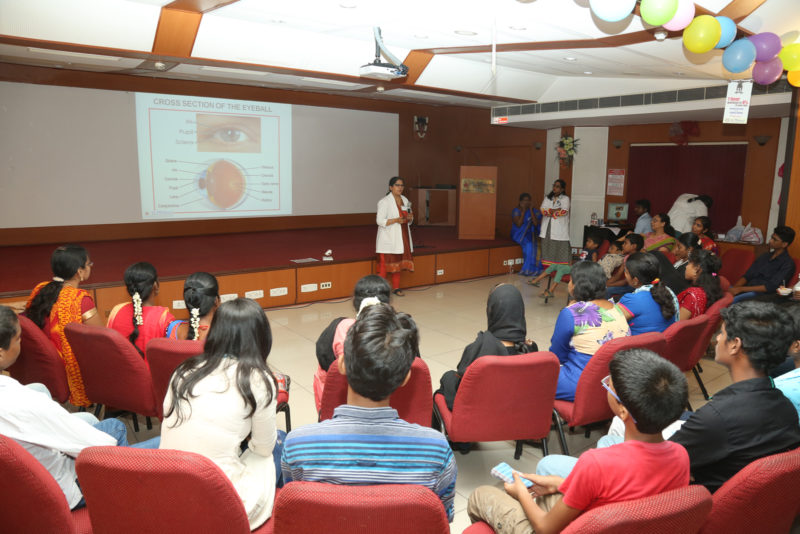Hyderbad: In a major initiative to address the problem of avoidable blindness in the country, the Union Ministry of Health, the Public Health Foundation of India (PHFI) and other organisation’s have successfully implemented two pilot initiatives on diabetic retinopathy (DR) and retinopathy of prematurity (RoP).
The initiatives were implemented in 14 states across the country between 2014-2019, a PHFI press release said here Tuesday.
They were implemented by PHFI’s Indian Institute of Public Health, Hyderabad, (IIPH-H) with technical support from the London School of Hygiene & Tropical Medicine (LSHTM) in 10 states for DR and four states for RoP.
Apart from prevention, screening and treatment, the key successes of the initiatives were providing “world-class training and equipment, effective advocacy and increasing public awareness about the two conditions”, the release said.
“Importantly, they have set the standard for tackling India’s non-communicable diseases (NCD) burden through the health system, and have made a key impact on the country’s public health policy framework,” the release said.
A national task force for DR and for RoP were established by the Ministry of Health, and each appointed technical expert groups to develop specific outputs, such as operational guidelines, and materials for health education and to increase public awareness on these conditions, it said.
The twin pilot initiatives on DR and RoP were part of a five-year, multi-million-pound grant by the Queen Elizabeth Diamond Jubilee Trust, it said.
The city would host a ‘national dissemination meeting’ between June 12 and 14 to mark the end of two large-scale initiatives for the prevention of blindness from DR and RoP, it said.
Approximately 65 million adults and 1,28,500 children in the country are living with diabetes and one in five people with diabetes have some degree of DR (14.6 million in India) and one in ten (7.3 million) has the vision threatening form of DR, it said.
In 2014, PHFI conducted a situation analysis in 11 major cities across India, and identified major gaps in the awareness, knowledge and skills of physicians and eye care providers on DR, the release said.
The analysis also noted a lack of awareness amongst people with diabetes of the risk to their sight from DR.
The diabetic retinopathy initiative was designed to develop and integrate services for the prevention, early detection and management of DR into government health systems.
The project was implemented in 53 government facilities in 10 states in the country, with 24 partners.
The key achievements of DR initiative include screening 60,970 people with diabetes and 4,072 being treated for DR, the release said.
It said 6069 accredited social health activists (ASHAs) and auxiliary nurse midwives (ANMs) were trained to motivate people with diabetes to go for DR screening.
Retinopathy of Prematurity (RoP) is a major cause of blindness in children in the country, the release said.
“There was little knowledge of the condition and how to prevent it within neonatal care facilities, nor understanding of the need to screen and treat the condition within the first 30 days of life,” it said.
The RoP initiative was implemented in 22 special newborn care units in district hospitals and medical colleges in four states involving 10 partners in Madhya Pradesh, Maharashtra, Odisha and Telangana, it said.
The major achievements of RoP initiative are that 10,392 preterm infants were screened for RoP. A total of 317 babies received sight-saving treatment and 606 pediatricians have been trained.
The release said 574 nurses in special newborn care units have been trained in prevention of RoP and assisting in screening.
“The DR-RoP initiatives are a signal achievement and a sign of India’s ability to pilot and execute complex, multi-state interventions targeting some of our most vulnerable populations,” the release quoted Sangeetha Abrol, Deputy Director General, Union Ministry of Health and Family Welfare, as saying.




